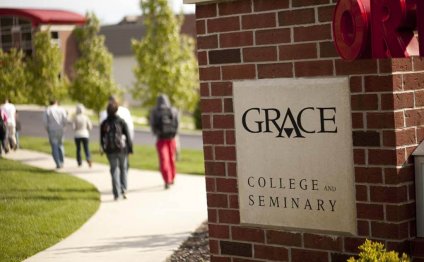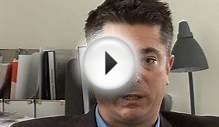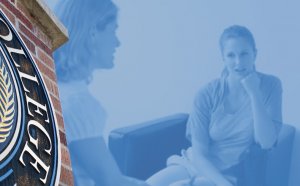
Accredited Mental Health Counseling Programs
There are many factors to consider when choosing a masters-level counseling program to attend. Attending a CACREP accredited program makes your choice a little easier because you can be assured that the program has met the standards of quality established by the profession.
CACREP accredits masters-degree programs in the following areas:
Addiction Counseling – Addiction Counseling programs prepare graduates to work with persons and families affected by alcohol, drugs, gambling, sexual and other addictive disorders (e.g., food-related). These 60-semester hour programs focus on models of treatment, prevention, recovery, and relapse prevention of addiction, along with the appropriate application of appropriate interventions. Graduates of Addiction Counseling programs may choose to work in private practice or may work in a variety of community agencies offering counseling services for substance abuse.
Career Counseling – Career Counseling programs prepare graduates to help persons wanting to make career decisions. Sometimes known as vocational counselors, career counselors help clients explore the intersection of their education, skills, interests, and personality to determine and plan for possible career paths. Career counselors often make use of inventories and other assessment tools to assist persons in making decisions. In addition, career counselors understand and maintain resource information on employment and labor market trends. Career counselors may work in a variety of settings from private practice, to career resource centers or employee assistance programs associated with specific industries or organizations.
Clinical Mental Health Counseling – Clinical Mental Health Counseling programs prepare graduates to work with clients across a spectrum of mental and emotional disorders, as well as to promote mental health and wellness. Clients may be seen individually, in couples, families, or group settings. Clinical Mental Health Counselors are knowledgeable in the principles and practices of diagnosis, treatment, referral and prevention and often work in interdisciplinary teams with other health professionals (e.g., psychiatrists, social workers, MDs). Employment opportunities may include private practice, community-based mental health centers, hospitals and other treatment centers.
(Please note that over the years, the titles used for this program area have been revised and regrouped. Therefore, the CACREP Directory of Accredited Programs may show programs with designations such as Community Counseling (CC) or Mental Health Counseling (MHC) only. These designations indicate that the accredited program was reviewed prior to the implementation of the 2009 CACREP Standards when the CC program standards and the MHC program standards were combined. Programs that have either the CC or MHC designation will be changed upon their next full accreditation review.)
Marriage, Couple and Family Counseling – Graduates of Marriage, Couple and Family Counseling programs have been prepared to work with individuals, couples and families from a family systems perspective. From this perspective, Marriage, Couple and Family Counselors work with clients across of variety of mental and emotional disorders, relationship issues, or communication issues and in a variety of work settings including inpatient facilities, community mental health centers, private practice offices, and social service agencies.
School Counseling – School Counseling programs prepare graduates to work with students ranging from kindergarten through high school. School counselors are prepared to promote the academic, career, and personal/social development of all K-12 students through understanding how to design and implement comprehensive school guidance and counseling programs that include time for individual counseling, group counseling, classroom guidance, family and teacher consultations within the school setting. School counselors work with in both private and public school systems at the elementary, middle, and high school levels.
Student Affairs and College Counseling – these programs prepare students to assume a variety of positions in higher education and student affairs offices after graduation. Such positions might include working at a college’s or university’s housing and residential life office, assisting with management activities at a student union, offering student leadership activities and orientation sessions, or providing counseling, career services, and multicultural support services. Students opting to specialize in student affairs and college counseling programs acquire a strong professional counseling knowledge base including: history of the profession, philosophy, ethics, theory and assessment, while simultaneously learning about the culture of higher education, its organizational dynamics, and administrative structure to enable them to provide leadership in student development issues and policy-making in student affairs.
(Please note that over the years, the titles used for this program area have been revised and regrouped. Therefore, the CACREP Directory of Accredited Programs may show titles areas such as College Counseling (ClC) or Student Affairs (SA) or Student Affairs College Counseling (SACC) to represent this area. These designations indicate that the accredited program was reviewed under a previous set of CACREP Standards and the program designation will be changed upon its next full accreditation review.
Although with the implementation of the 2009 CACREP Standards, institutions no longer have the option to seek accreditation under the following program areas titles, the CACREP Directory of Accredited Programs still reflects those institutions that have attained accreditation for these programs through the end of their current accreditation cycle. When these programs apply for their next full accreditation review, these programs will be dropped from the CACREP list.
RELATED VIDEO



Share this Post
Related posts
Masters of Mental Health Counseling
BECOME ELIGIBLE FOR NY STATE LICENSURE AS A MENTAL HEALTH COUNSELOR For less in tuition costs than other programs! The City…
Read MoreCity College Mental Health Counseling
*Note: The program admits for the fall semester only. Total Credits: 60 GRE Required: No Minimum TOEFL/IELTS Scores: 550…
Read More










